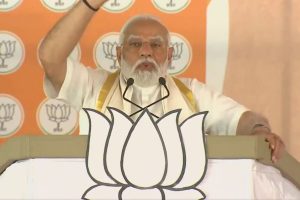Sanjay Leela Bhansali’s epic magnum opus, Padmaavat, has finally witnessed its worldwide release after a controversial battle with Karni Sena and other fringe groups. But the latest buzz from the tinsel town is a shocking revelation.
Much to everyone’s surprise, the lead role of Padmaavat was initially offered to none other than King Khan, Shah Rukh Khan.
Yes you heard it right. SRK was Bhansali’s first choice to essay the lead role of Raja Rawal Ratan Singh, a role which was eventually played by Shahid Kapoor.
According to reports, Shah Rukh was approached by the makers of the film to essay the role of Deepika’s love interest in the film. But the super star found the role not as powerful as the other male counterpart of the film, Alauddin Khilji.
If reports are to be believed then it was SRK, who turned down the offer to essay the role in the epic historical drama.
But that’s not all; Bhansali was firm on casting his Devdas actor one more time in his film that he even offered him the actor’s desired role of Khilji.
SRK had to reluctantly turn down the second offer as he was facing serious backlash after the release of gangster drama film, Raees.
Apparently the actor was in no condition to essay a controversial character like Khilji that might cause more trouble for him.
While SRK’s rejection to the roles was a gift to actors Shahid and Ranveer Singh, both of whom are being widely appreciated for their performances, it was indeed a miss at one of the most iconic films ever made in Bollywood on the actor’s part.
Nonetheless as the humble man he is, SRK has always supported young talent and wished Padmaavat a glorious journey at the box office.
Directed by Sanjay Leela Bhansali, the controversy-ridden film released worldwide on January 25.











